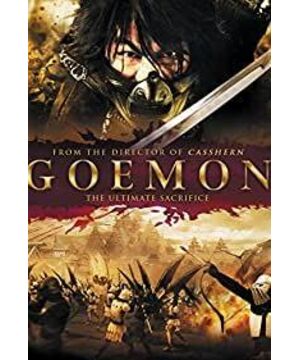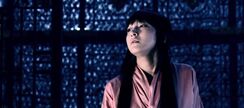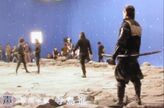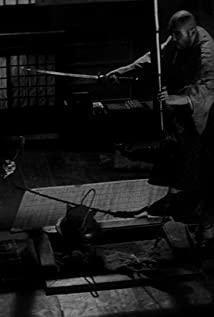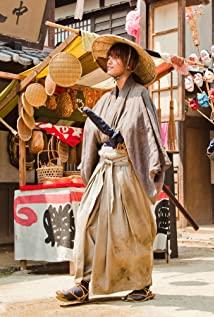In today's popular PSP handheld and PS3 home consoles, it is not a very important thing for Chinese teenagers who love games to understand an anecdote that was widely circulated in Japan four or five hundred years ago without any foreign language foundation. It is a difficult task. Those children who are watching "Warring States Pharaoh" and playing "Warring States Warriors" can recite the scandalous history of Oda Nobunaga and Tokugawa Ieyasu, and their knowledge is no less than that of Chen in Tang, Song, Yuan, Ming and Qing Dynasties. Years past. Therefore, the appearance of the movie "The Great Thief Ishikawa Goemon", and the discussions on major forums can be extended and fixed on whether the description of historical events is true, and whether there is some kind of deformed patriotism complex that blinded the creator. Such deep-seated problems, while ignoring the teachings that the film itself can carry.
The huge aura from the inside to the outside of "The Great Thief Ishikawa Goemon" is due to the unparalleled gorgeousness-the epic cast of "Shen Bing Tian Jiang", which is comparable to the visual wonders of Hollywood and the beauty of Japanese classical culture. The beautiful complement each other, and the heat caused by the past has its own reasons. The film tells that after Oda Nobunaga suffered the "Honnoji Catastrophe", the two ninjas he trained, Goemon and Kaizuka, parted ways. The former longed for freedom after witnessing the experience of Nobunaga's niece, Chacha, and became a man who robbed the rich and helped the poor. The thief, known as the friend of the poor, who aspires to become a samurai and lives under the gate of Ishida Sancheng. When the two found out that Nobunaga was his former subordinate Toyotomi Hideyoshi colluded with the rebellious minister Mitsuhide Akechi, they joined hands to make a comeback for the common people of the people of Li and returned the world to a peaceful story. The screenwriter slightly adapted the plot of Goemon in the official history being fried to death by Toyotomi Hideyoshi with a frying pan, and extended a paragraph in which Kirigen hides "the worries before the world and the worries".
The story of assassinating the king to obtain peace in the world seems to have exhausted the humanistic ideas that can be implied. Chen Kaige used "Jing Ke to assassinate the King of Qin" to interpret the eulogy of human nature looking for redemption in troubled times, and Zhang Yimou completed the confrontation between the world and the individual through "Hero" Sublimation: In "Robber Ishikawa Goemon", what the director conveyed is almost a combination of the two. The personal growth of a hero must be remembered along with the turning point of history, but there must be endless erosion wounds beneath it; the two countries fight for military power, and it is always the common people who die. Violence ends with violence. In the long volume, there is always a paradox.
Under the guidance of this theme, director Ji Ligu and Ming obviously went further than "Heroes", because the latter only achieved the same goal of peace with Wuming and Qin Wang, and the film was completed with the sacrifice of one party and the heavy burial of the other party. With the handshake of this era, it is obvious that this harmony is superficial and self-deceiving - history is created by the people, how can the agreement of the two heroes complete the great cause of the world's great harmony - but "Robber Ishikawa Goemon" Even if the ending is also the death of Goemon, the height of its criticism lies in accusing the disciple who originally served Goemon as the murderer of Goemon, and this man finally showed greed and greed after he succeeded. The nature of ambition, he madly questioned the crowd's applause for him, the hero who succeeded in catching the assassin, and completed his mission as a clown jumping beam: this added a mouse shit that could not be ignored to the originally happy ending, and it was precisely because In this way, "The Great Thief Ishikawa Goemon" is slightly more reflective than "Hero".
Even if the film is full of depictions of war and human nature, it cannot be assumed that this film is a historical film with a strong sense of preaching. On the contrary, the viewability of the film can be said to be the leader of Japanese films this year-Yosuke Eguchi and Ryoko Hirosue The lineup of superstars led by the emperor can be said to be the parade of popular movie stars in Japan - even the girl's generation of the first beauty of the Warring States period, played by Ryoko Hirosue, was shot by the new generation of Japanese idol Mayuko Fukuda. take responsibility. And Yosuke Eguchi, the playful playboy in "Tokyo Love Story", has also become the director's first choice because of his wild side. Ryoko Hirosue, who returned to the public eye with "The Undertaker", perfectly interprets this woman of the Warring States Period with her delicate classical appearance and casual but in-place performance.
In addition, almost all the sets in the film come from computer special effects, whether it is the courtyard in the palace or the mountains and rivers, they are very similar to Chen Kaige's magical masterpiece "The Promise". The image style of "The Great Robber Ishikawa Goemon" fits the original cultural features of Japan during the war. The strong and full colors are the externalized depictions of the desires and repression in the hearts of the people at that time, so it shows a different kind of image. Sentiment. And this theme is ahead of "Hero", and the image style has followed the footsteps of "Promise". It describes a tragic epic about heroes and promises (the English translation of "Promise" is Promise), regardless of whether it is intentional or not. The elements of prostitution history, the hearty feeling of the film itself, is really rare.
View more about Goemon reviews


